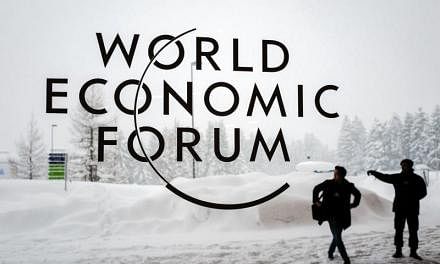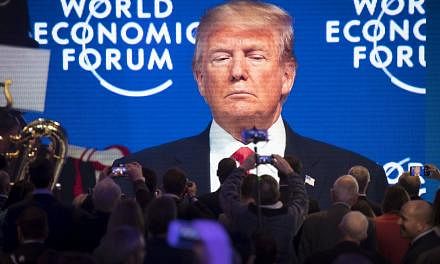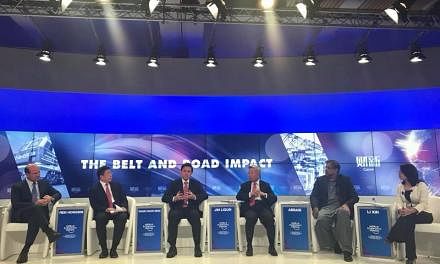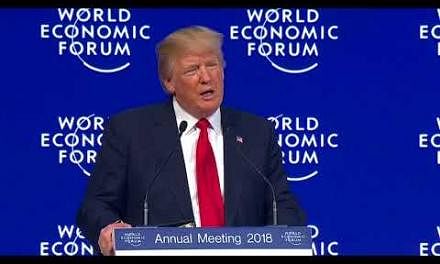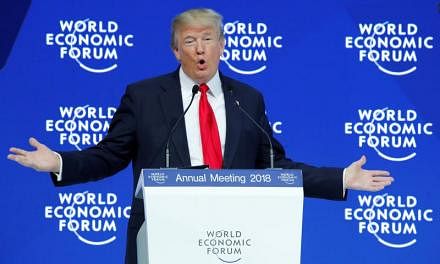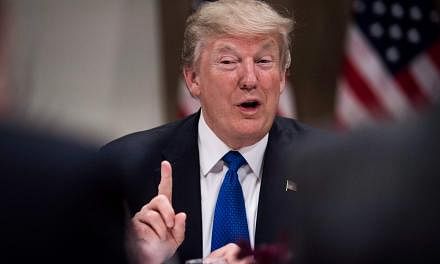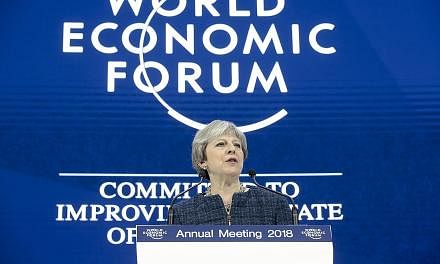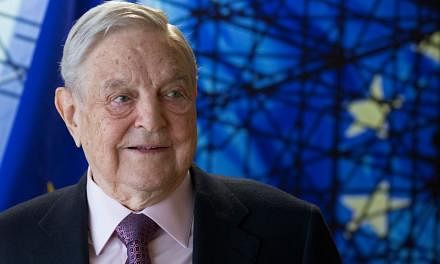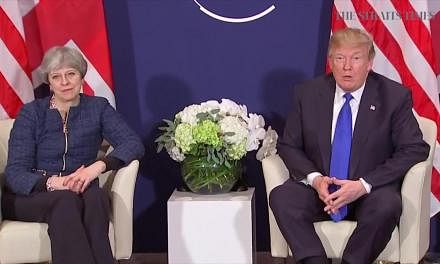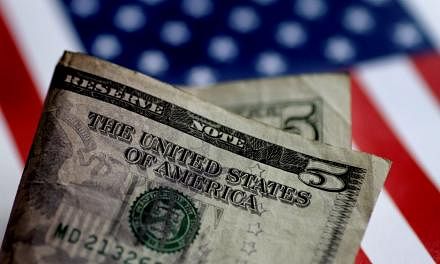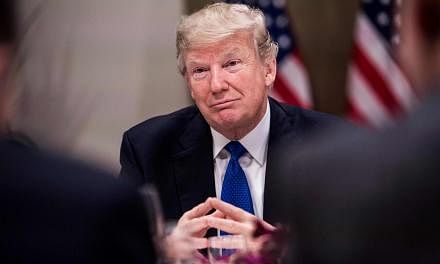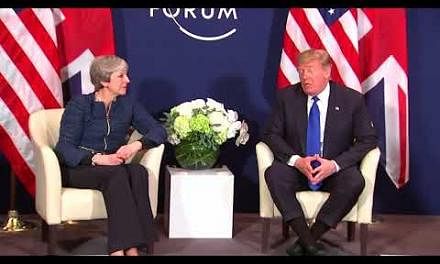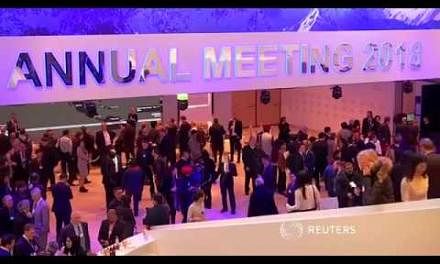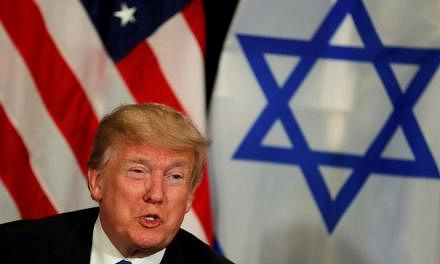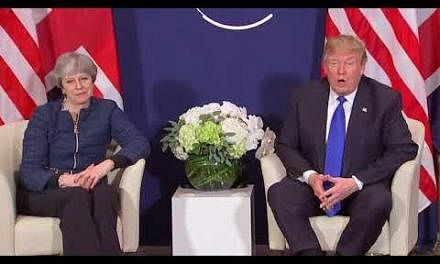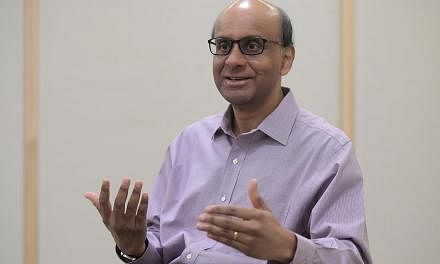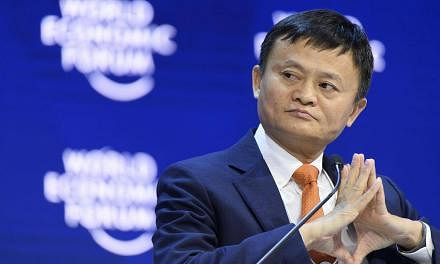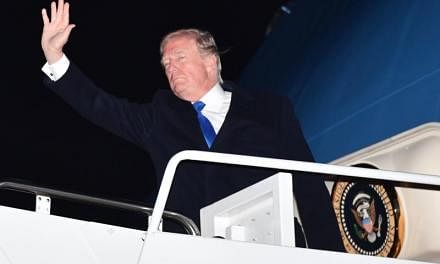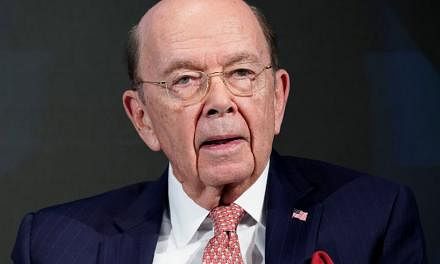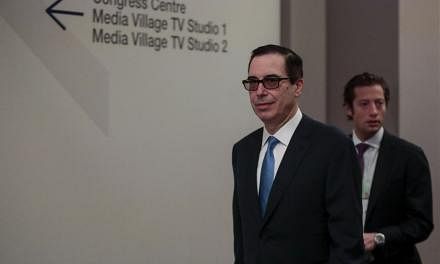DAVOS, Switzerland (AFP) - Britain on Thursday (Jan 25) won anew the promise of a US trade deal as soon as its EU exit is done, but European partners poured cold water on any trans-Atlantic hopes for a rapid outcome.
Only minutes into his visit to the World Economic Forum in Davos, US President Donald Trump heaped praise on Prime Minister Theresa May after months of tension in the "special relationship".
Part of their discussions in the posh ski resort in Switzerland focused on the possibility of a free-trade deal after Britain's divorce from the European Union.
Trump said efforts to that end were already under way.
"Trade is going to increase many times and we look forward to that," he told reporters after the meeting.
May said the two allies "were working for a great trade relationship in the future which will be to both our benefit".
US Treasury Secretary Steven Mnuchin said negotiations could start "as soon as the UK is ready".
Moreover, Britain "would go to the front of the line, not to the back of the line as President (Barack) Obama had suggested," Mnuchin added in reference to a threat by Trump's predecessor ahead of Britain's Brexit referendum in June 2016.
But for now, Britain is bound by EU rules stating that no member country can venture into trade negotiations as long as it is still a member of the bloc.
"Britain cannot negotiate with the US or any country," warned EU Trade Commissioner Cecilia Malmstroem, the bloc's top trade official, also in Davos.
"But obviously with the clock ticking... the British administration reaches out and we understand that, but they cannot start negotiating before Britain has left on March 31, 2019," she added.
CAMERON'S SLIP
Britain is set to officially leave on that date, and is currently locked in tortuous negotiations with the EU on the terms of divorce.
The two sides reached an in-principle agreement on separation terms in December and are due to start talks in February on a post-Brexit transition period.
In April, the two sides will tackle future ties, including a trade deal, but much remains to be thrashed out.
British finance minister Philip Hammond called in Davos for "the closest possible future relationship between the EU and the UK, post Brexit".
"None of our European economies are so strong that we can afford to be exposed to any unnecessary economic, fiscal, or financial stability risks," he said in a speech.
Irish Prime Minister Leo Varadkar, whose economy has the most to lose in the EU from a messy Brexit, agreed in Davos on the need for "a very close partnership".
"But it does come with the proviso that the UK needs to recognise that if it wants access to the European Union, to our market of 450 million and everything that goes with it, there are responsibilities, costs and obligations as well," Varadkar told reporters.
French Finance Minister Bruno Le Maire underlined that France and Britain remained tied through "history, geography and culture".
"But we say clearly, we can't just take what we want in the EU and not take what we don't," he stressed.
The decision to hold the referendum was taken by former prime minister David Cameron, who despite campaigning hard to remain in the EU was caught on camera in Davos this week saying that Brexit was "a mistake", but not a disaster.
"It's turned out less badly than we first thought. But it's still going to be difficult," he told Indian billionaire Lakshmi Mittal, in a conversation filmed by Britain's Channel 5 News.
EU Economic Affairs Commissioner Pierre Moscovici said Cameron's hot mic moment was "not inspiring, because I truly believe that Brexit is not a good thing".
"We try to get it sorted as good, as well, as possible. But still, it's a problem we would have loved to be rid of," he told CNBC television in Davos.
